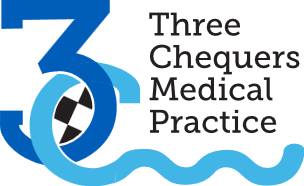Tests and Results
The quickest way to view your test results is via your SystmOnline account. Alternatively, you can contact the surgery via the telephone results line. This is available between 2pm and 5:30pm Monday - Friday. Please phone 01722 336 441, and the extension is number 3 for results.
Please call after 2:00pm to enquire about your test results as our reception staff will have more time to deal with your request then. Please remember that if your results are a cause for concern, your GP will contact you directly. The receptionists will give you information about your results as advised by your doctor.

Note that the Practice has a strict policy regarding confidentiality and data protection, and we will only release test results to the person to whom they relate unless that person has given prior permission for the release of this data.
When you take your test, you will be told how long it will be before the results are returned to the practice.
Blood Test Results
Often take three to four days, although some do take longer. Be assured that if your results are unexpected, a member of the clinical team will contact you directly.
X-Rays and Scans
Can take at least a week. Again, we will contact you directly if these results need further discussion.
Samples
Must be brought in before 12:00pm.
Urine samples must be in a sterile bottle from the surgery and must also be correctly labelled with name and date of birth.
Please allow plenty of time for results to be returned, viewed and assessed by the GPs, before ringing for these.
It is your responsibility to check your results and to make an appointment to discuss them with your doctor if you are advised to do so.
Please note that the Triage Doctor is not available to discuss non-urgent test results.

Blood Tests
A blood test is when a sample of blood is taken for testing in a laboratory. Blood tests have a wide range of uses and are one of the most common types of medical test. For example, a blood test can be used to:
- assess your general state of health.
- confirm the presence of a bacterial or viral infection.
- see how well certain organs, such as the liver and kidneys, are functioning.
A blood test usually involves the phlebotomist taking a blood sample from a blood vessel in your arm and the usual place for a sample is the inside of the elbow, where the veins are relatively close to the surface.
You can find out more about blood tests, their purpose and the way they are performed on the NHS website.
Children's Blood Tests
For children up to the age of 16, blood tests are administered at the Day Assessment Unit (DAU) at Salisbury District Hospital.
Be sure to take your blood form and any information given by your GP to the unit.
Please click the button below for all details about children blood tests at Salisbury District Hospital.
Fasting Blood Tests
If you require a fasting blood test, please tell the receptionists who will try and find an appointment as early in the morning as possible. For a fasting blood test, please do not eat or drink for 12 hours prior to the test, although water is permitted.
Other Tests
You may be sent to the hospital for other tests.
Further information on other medical tests can be found by visiting the NHS website.
X-Ray
An X-ray is a widely used diagnostic test to examine the inside of the body. X-rays are a very effective way of detecting problems with bones, such as fractures. They can also often identify problems with soft tissue, such as pneumonia or breast cancer.
If you have a X-ray, you will be asked to lie on a table or stand against a surface so that the part of your body being X-rayed is between the X-ray tube and the photographic plate.

An X-ray is usually carried out by a radiographer, a healthcare professional who specialises in using imaging technology, such as X-rays and ultrasound scanners.
You can find out more about x-ray tests, how they are performed, their function and the risks by visiting the NHS website.
INDEX - Services
We use cookies to help provide you with the best possible online experience.
By using this site, you agree that we may store and access cookies on your device. Cookie policy.
Cookie settings.
Functional Cookies
Functional Cookies are enabled by default at all times so that we can save your preferences for cookie settings and ensure site works and delivers best experience.
3rd Party Cookies
This website uses Google Analytics to collect anonymous information such as the number of visitors to the site, and the most popular pages.
Keeping this cookie enabled helps us to improve our website.

